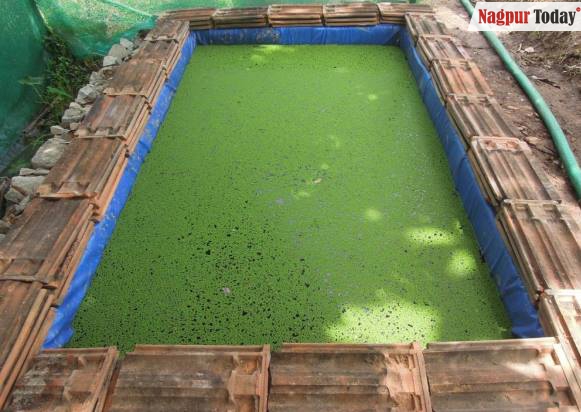
Nagpur: With the onset of the monsoon, there is a significant increase in mosquito activity, leading to outbreaks of deadly diseases like dengue and chikungunya. The research conducted jointly by Rashtrasant Tukadoji Maharaj Nagpur University (RTMNU) and S S Jaiswal College, Arjuni Morgaon, has explored the potential of the rare plant Azolla, also known as ‘Mosquito Fern’ which can control growth of mosquitoes.
Considering the importance of this plant, Dr Sharad Deshmukh, Head of the Microbiology Department at S S Jaiswal College, and Dr Sanjay Dhoble, Senior Professor at the Post Graduate Teaching Department of Physics of RTMNU, decided to undertake this research. A research proposal was submitted to the Research and Development Cell of the university, which was approved in recognition of the plant’s significance.
Dr Deshmukh said, “In Gondia or even in Arjuni Morgaon, this plant is known as sanjivani. It is a valuable plant for controlling environmental changes and has numerous benefits for human life. Despite its advantages, it has been largely overlooked. Historically, Azolla was used as a biofertilizer for rice cultivation and to reduce the impact of weeds, as mentioned in ancient texts. However, its various benefits have been neglected. Azolla is also called ‘Mosquito Fern’ because of its ability to reduce mosquito breeding and halt the spread of pathogens like plasmodium, which causes Malaria. When more than 75% of a water surface is covered by Azolla, the density of larvae significantly decreases.”
The research has revealed that Azolla is particularly useful for human health. During the monsoon season, diseases such as Zika virus, chikungunya, yellow fever, dengue, and malaria spread widely, affecting many people. These diseases are transmitted by mosquitoes, so controlling mosquito breeding is crucial. Stagnant water during the rainy season provides a breeding ground for mosquitoes. The research indicates that cultivating Azolla in household settings can effectively control mosquito populations and help mitigate disease outbreaks.
Dr Dhoble said, “This plant has a peculiar property because of which it absorbs carbon dioxide and releases oxygen in the atmosphere. The larvae floating on the water couldn’t get oxygen because of the presence of Azolla and they die.” Azolla could also prove beneficial in cities and villages to curb the spread of dengue and chikungunya.
A recent survey in Nagpur conducted by ASHA volunteers has identified 32,121 households with mosquito larvae in contaminated containers, coolers, tires, pots, drums, and bird feeders. Planting Azolla in these areas could control mosquito populations. Dr Deshmukh and Dr Dhoble believe this research will be useful for controlling mosquitoes and diseases like dengue and chikungunya. To address air pollution’s adverse health effects, the research has developed a design that has received an international patent.
Dr Deshmukh pointed out, “I have been conducting research for the last one year where I found the mosquito growth was drastically reduced. Unfortunately the quantity of the plant is inadequate. If authorities look into this aspect then we can avail several benefits of this plant.” The Research and Development Cell of the university has accepted and funded the research proposal.
Dr Prashant Bokare, Vice Chancellor; Dr Sanjay Dudhe, Pro-Vice-Chancellor; Dr Raju Hiwase, Registrar; Harish Paliwal, Finance and Accounts Officer; and Dr Prashant Maheshwari, Dean of the Faculty of Science and Technology have supported this research along with S S Jaiswal College’s President Lunkar Chitlange, VicePresident Badri Prasad Jaiswal, and Secretary Mukesh Jaiswal, as well as Dr Ishwar Mahule from Shivprasad Sadanand Jaiswal College, Arjuni-Morgaon.















